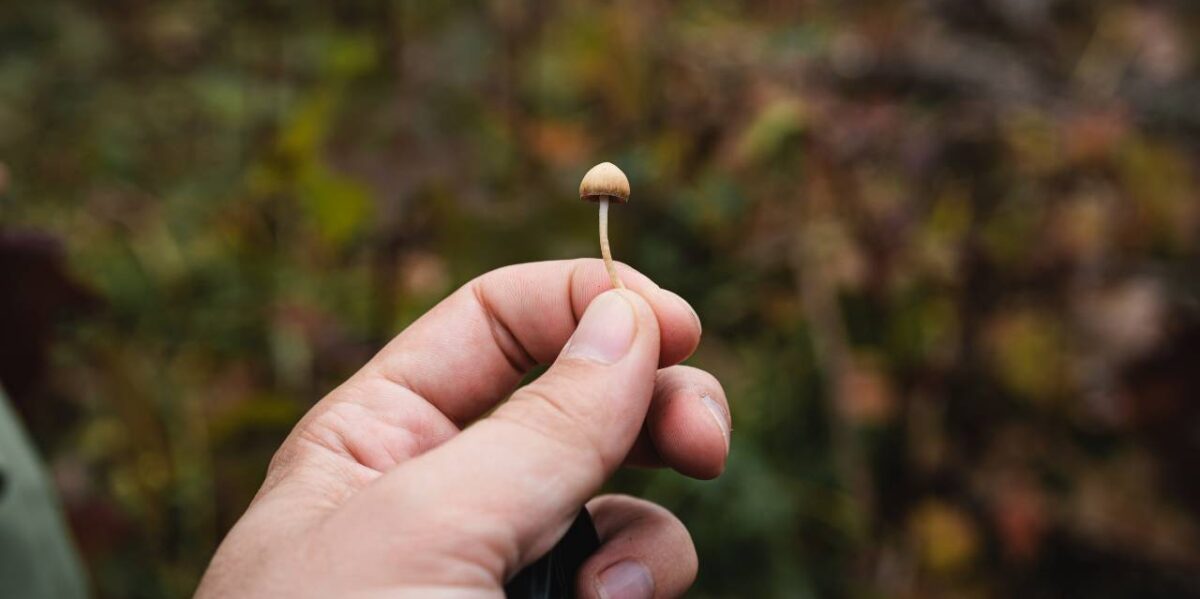Politicians and health experts are calling on the federal government to legalize medical psilocybin to treat depression, anxiety, and terminal illnesses.
Psilocybin, an active compound in a variety of species of magic mushrooms, has been proven through clinical trials to be a safe and effective treatment for a number of mental and physical illnesses.
The delegation is urging the federal government to seek compassionate access for Canadians who can rely on medical assistance in dying but don’t have access to medicine that, as Hawkswell says, “could be life-affirming.”
Canada’s health-care system already allows for treatments including cannabis, access to Medical Assistance In Dying (MAID), abortion and safe recreational drug injection in some provinces.
Patient speaks out on benefits of medical psilocybin
A stage-four breast cancer patient, Janis Hughes, became an advocate for medical psilocybin after her cancer came back in 2021.
She learned of studies done at John Hopkins University looking at psilocybin as a treatment for end-of-life cancer patients. But finding a health-care practitioner who would prescribe her medical psilocybin proved to be an impossible task.
Hughes is still waiting to find out whether Health Canada will give her an exemption allowing her to access psilocybin. But time is running out.
In the meantime, she has been forced to “go underground” to access unsanctioned psilocybin treatments, something Hughes says has “made all the difference in the world” for her mental health.
“They completely altered my relationship to myself and they banished my fear of dying,” Hughes said.
She has signed on as a plaintiff in a Charter of Rights challenge to the B.C. government’s prohibition of medical psilocybin in hopes that those in similar situations won’t have to go underground to find relief.
B.C. doctor blocked from treating clients with psilocybin
Valorie Masuda, a palliative care doctor on Vancouver Island, spends her work days helping individuals who are near death without reasonable treatment for their end of life distress.
“We used to actually put them in a form of terminal sedation because they could not bear living with this kind of distress,” Masuda said. “We used to put them in a deep sleep as they neared their dying time and would allow them to die naturally, but under deep sedation.”
But two years ago, Masuda had a patient suffering with “extreme existential distress” with pain that couldn’t be managed, even by tertiary care palliative facilities.
That is when she reached out to Bruce Tobin, the CEO of TheraPsil. Together, they helped the patient receive a Section 56 exemption to be treated with psilocybin.
A Section 56 exemption allows Health Canada to grant medical officials access to “allow a controlled substance or precursor to be used for specific scientific or medical purposes, or when it is determined to be in the public interest.”
“I had no experience with psilocybin, but I had read the data… and felt this was her only hope for a peaceful dying time,” Masuda said. “Her transformation was so remarkable that she died with peace.”
Since then, Masuda says she’s supported close to 25 people to access a Section 56 exemption or through a Special Access Program provided by Health Canada in order to receive a psilocybin prescription.
But in the summer of 2022, Masuda was told she could no longer access psilocybin through the Special Access Program due to “treating too many people.” The move has left many of her patients seeking psilocybin underground by unregistered therapists with no medical direction.
‘It’s building a wall of ignorance’
Co-leader of the federal Green Party, Elizabeth May says the evidence is clear: psilocybin can be used to alleviate stress, anxiety, and treat terminally ill patients.
May is calling on the federal government to advance clinical trials, ramp up research efforts, and ultimately increase access to psilocybin.
With the introduction of MAID, May wants health officials to ensure they don’t turn the other cheek when it comes to psilocybin as a possible cure.
“To say that someone is incurable while refusing to look at a cure strikes me as beyond lacking in empathy,” May said. “It’s building a wall of ignorance.”
NDP MP Alistair MacGregor agrees. A member of the special joint committee on MAID, MacGregor noted one of the five key themes the body was tasked with centered around palliative care.
“There’s promise in helping people deal with trauma, dealing with existential dread at the end of life,” he said.
Canada’s first federally funded study on medical psilocybin
Last summer, the Centre for Addiction and Mental Health (CAMH) received Canada’s first federal grant to study psilocybin’s effect on treatment-resistant depression.
Key to the researchers’ mandate was exploring whether the psychedelic effects of psilocybin are necessary for it to have antidepressant effects.
Dr. Ishrat Husain, head of CAMH’s clinical trials unit, said at the time that a combination of psilocybin treatment and intensive psychotherapy has been found to be effective in previous clinical trials.
“If this study shows that psilocybin is still effective at treating depression without inducing a psychedelic state, it could remove the time-intensive and costly need for psychological support during the treatment,” Husain said in a July 2022 release.
The study is analyzing 60 adults with treatment-resistant depression over the course of three years.
One third of the group will receive a full dose of psilocybin with serotonin blockers that inhibit the drug’s psychedelic effect. The second group will be given psilocybin and a placebo, while the final group will receive a placebo and a blocker.
While the study could prove beneficial to patients, in the meantime, there are many without access to a possible cure for their ailments.



